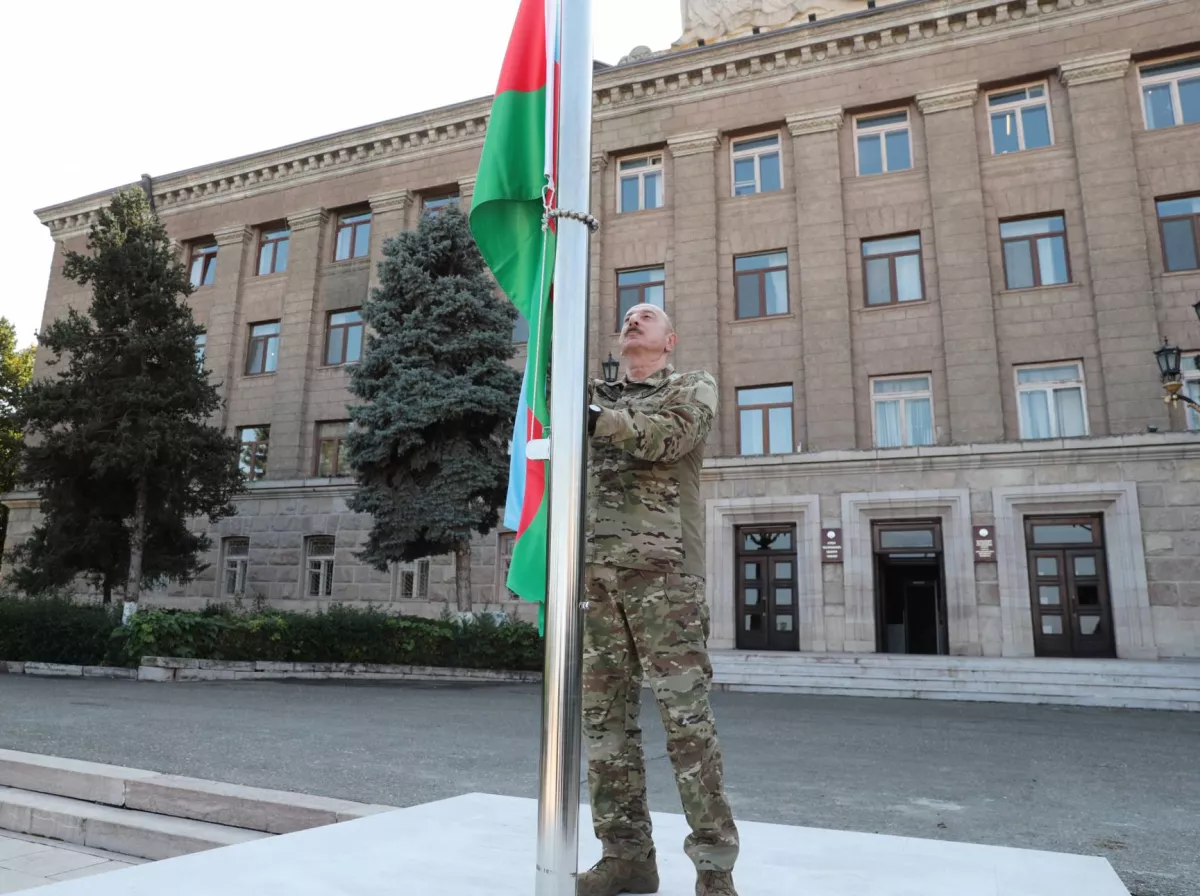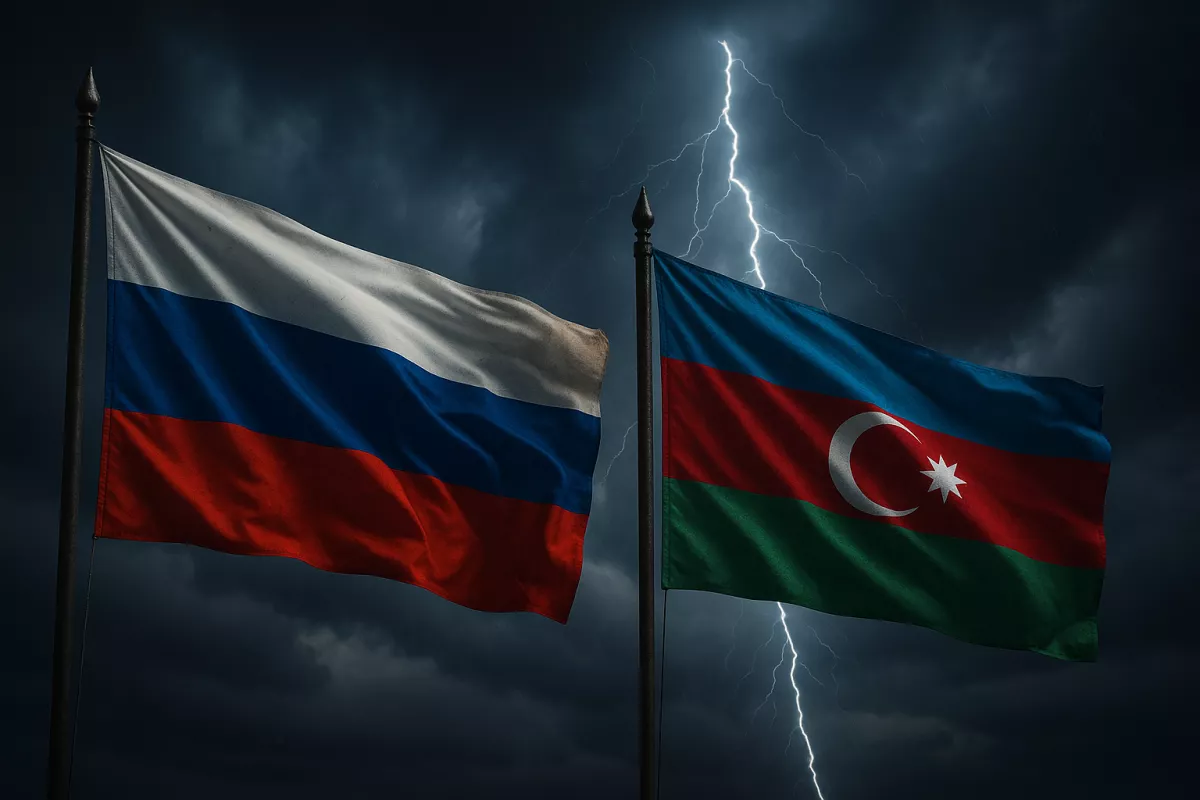TASS revives Soviet myths — Baku ready to remind Russia of its contested toponyms Treat others as you want to be treated
In the post-Soviet space, for people of middle and older generations, the phrase “TASS is authorised to declare” is associated not only with the title of a popular Soviet-era TV series depicting the rivalry between Soviet and American intelligence services, but also with the opening line of official USSR statements on international affairs disseminated through the Telegraph Agency of the Soviet Union (TASS).
This phrase was used to lend weight and official authority to messages typically cited across Soviet media, signalling that the information that followed came from the highest levels of Soviet leadership and represented the official position of the government. It was particularly used to announce significant developments, responses to international crises, or declarations on foreign policy.
Over time, the phrase became a set expression synonymous with official statements and declarations. Now, we’ll explain why we’ve chosen to focus specifically on these aspects of TASS’s activities.
Words are not just labels. Especially when it comes to geography, where each name carries history, political will, and a choice of values.
That is why the publication by the Russian state agency TASS on July 31, which referred to the Azerbaijani city of Khankendi as "Stepanakert," was not a mere technical error but a political gesture. It triggered a predictable wave of outrage in Azerbaijan—both among the public and in official circles.
Until then, TASS had correctly used the official toponym—Khankendi—for several years. Moreover, on July 19 and 24, the agency published materials where the city's name was indicated correctly. But a week later, there was a sharp reversal—as if following some tacit instruction—and the headline featured a toponym long consigned to the archive along with Soviet mythology: "Stepanakert."
This is exactly what Khankendi was called during the Soviet era — an Azerbaijani city that became the administrative centre of the Nagorno-Karabakh Autonomous Oblast, artificially created on the territory of Azerbaijan occupied by Soviet Russia. The name “Stepanakert” was assigned to it in August 1923. The renaming was not a neutral act, but a manifesto of Soviet policy: to immortalise the name of Stepan Shaumyan, one of the leaders of the Baku Commune and a direct organiser of the mass killings of Azerbaijanis in March 1918.
This is the part of history that Azerbaijan does not forget. Therefore, the restoration of the city’s historic name — Khankendi — in November 1991 was not simply an act of decommunisation. It was a step towards restoring justice and historical truth. The raising of the flag in the city’s main square on 15 October 2023 by President Ilham Aliyev definitively confirmed not only the return of physical control but also full sovereignty.

When a Russian agency, directly controlled by the state, decides to revert to the toponym “Stepanakert,” it is not perceived as a mistake. It is a signal. And one that is read very clearly: if the Russian side is willing, for the sake of short-term political expediency, to revive the rhetoric of past regimes, then Azerbaijan also has the right to remind that Russia itself has plenty of historical toponyms it prefers to keep silent about.
We can start with Kaliningrad. This German city on the Baltic coast, annexed by the USSR after World War II, was called Königsberg until 1946 — and it is known by this name in German, Polish, and more broadly, European and world historical tradition.
We can also recall Orenburg — Orynbor — an important trading post at the crossroads of Europe and Asia, which bore a Turkic name long before the arrival of Russian colonisers.
There is Volgograd, formerly Tsaritsyn, then Stalingrad — and before that, Sarysu, which in Turkic means “yellow water.”
Grozny was originally Solzha-Gala, a fortress in the territory of historic Chechnya.
Novorossiysk was once Sudzhuk-Kale.
Yuzhno-Sakhalinsk — Toyohara. Yuzhno-Kurilsk — Furukamappu.
Petrozavodsk — Petroskoi. Izhevsk — Izhkar. The Volga River — Itil.
All these names are not inventions. This is neither conspiracy theory nor provocation. This is historical reality, documented in sources — not only foreign but also Russian. And if necessary, Azerbaijan has the right to respond to any disrespect toward its territorial sovereignty and history by using precisely these historically accurate names.
Of course, Azerbaijan is not a revisionist country — neither in politics nor in cartography. But when someone starts to blur the boundaries of respect by refusing to recognise the restored name of a liberated city, Baku has no reason to remain silent. Especially when it concerns the state rhetoric of a country with which we maintain diplomatic relations, close economic ties, and even a Declaration on Allied Interaction.

This story is not limited to toponyms — it speaks to a deeper and more troubling trend. Azerbaijan has already made it clear that such attitudes toward symbols and names are not seen as mere misunderstandings but as part of a series of unfriendly gestures.
Azerbaijan’s Foreign Ministry spokesperson, Aykhan Hadjizada, reminded that the installation of a bust of Aivazovsky (Aivazyan) in Khankendi by Russian peacekeepers without Baku’s consent was not simply a procedural violation — it was a demonstration of disregard for sovereignty. The subsequent removal of the monument was both logical and justified — not as an act of “cancel culture,” but as the restoration of rightful order in a liberated territory.
What is particularly alarming is that all this is happening against the backdrop of a deliberate silence regarding the vandalism of monuments to Azerbaijani culture that occurred during the years of Armenian occupation of Karabakh. No statements, no condemnations. Mikhail Shvydkoy, Special Representative of the Russian president, visits Shusha but says nothing about destroyed mosques, burned mausoleums, or uprooted heritage.
Therefore, the issue now is broader: it is not only about the name of one city. It concerns the boundary between respect and one-sided political memory. If one side considers it acceptable to use terms from a separatist past, then the other side gains the moral right to remind of the multilayered history and geography of those who have forgotten that language is not only a means of communication but also a mirror of values.
Azerbaijan does not seek escalation. But it is ready to respond in kind. And in this response, there will be everything: facts, memory, and the principle of reciprocity that underpins any dialogue — especially between states that (still) maintain a partnership relationship.
P.S. After the preparation of this material for publication, the headline on the TASS website was changed — instead of the word “Stepanakert,” the name “Nagorno-Karabakh” was used. However, this formulation also does not withstand any criticism. The term “Nagorno-Karabakh” has long lost its relevance: there is no territorial unit by that name within Azerbaijan. There is the Karabakh Economic Region of the Republic of Azerbaijan — fully restored within its sovereignty. Replacing one distorted name with another only confirms the unwillingness of certain Russian entities to acknowledge the realities of the post-war period and to respect Azerbaijan’s territorial integrity.








